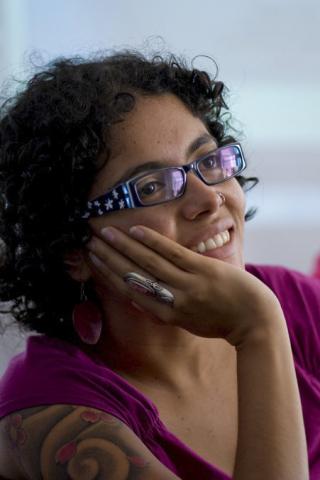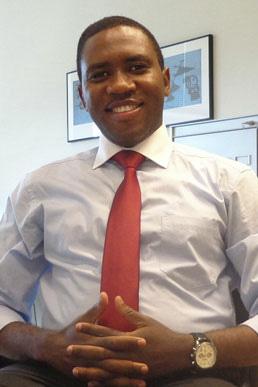Nadia Bazán Londoño

Colombia, 2011
Grants Coordinator, Fondo de Acción Urgente de América Latina y el Caribe Hispanohablante
Though forced migration, rape and domestic violence are part of Colombia’s everyday life, Nadia Juliana Bazán Londoño maintains that “there is also hope and willingness to improve our situation.”
Bazán Londoño says that her mother’s example motivated her to work in human rights. “I learned about inequalities [when I was] very young,” she says, “[by] attending political meetings at the university where my mother was studying.” In high school, she joined a group of conscientious objectors to military conscription. Through this group she first facilitated non-violent workshops for young people with the goal of changing their mindsets from war and violence to dialogue and non-violent strategies. Nadia then discovered the world of women’s funds and found her niche in supporting the impactful work of grassroots women’s organizations by securing financial resources for women’s rights.
She admits that in spite of the many challenges she faces in her human rights career, including stress and sometimes fear, she remains “strengthened by hope—the hope for transforming inequalities, the hope for clean water, and the hope for access to education, among other basic human needs. If everyone realizes that everything can be shared, then fulfilling rights will allow us to grow and develop as a nation. I have the sense of the right path and that in collaborating with others, you know you’re not alone and can find strength.”
April 2017 Update: Bazán Londoño is now a part of Women For Peace (Mujeres por la Paz) where she has been working to protect the rights of those affected by armed conflict in Colombia. This past year, her efforts were instrumental to allowing peace talks to come to fruition, eventually resulting in a permanent signed agreement between the Colombian government and the FARC guerrilla.
Updated by Gabrielle Isabelle Hernaiz-De Jesus in 2017.








